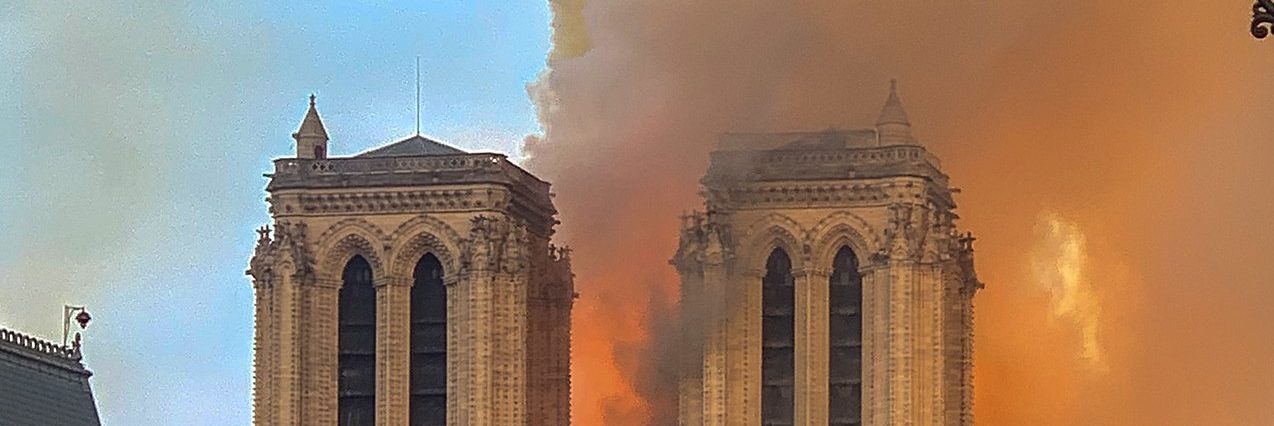A cynic remarked that last week’s fire at Notre Dame has turned out to be an excellent excuse for social media users to post pictures of their vacations in Paris. A less cynical interpretation is that the fire at Notre Dame prompted social media users to memorialize an encounter with a work of art and beauty that reminded them that they were living in a bigger story than they typically thought.
It is remarkable what that building has meant to people who have only seen it once, to say nothing of Parisians for whom Notre Dame has been part of daily life. In her book Reason for Hope, the primatologist Jane Goodall described her first visit to Notre Dame. She watched the morning sun stream through the Rose Window while Bach’s Toccata and Fugue in D Minor filled the place:
That moment, a suddenly captured moment of eternity, was perhaps the closest I have ever come to experiencing ecstasy, the ecstasy of the mystic. How could I believe it was the chance gyrations of bits of primeval dust that had led up to that moment in time—the cathedral soaring to the sky; the collective inspiration and faith of those who caused it to be built; the advent of Bach himself; the brain, his brain, that translated truth into music; and the mind that could, as mine did then, comprehend the whole inexorable progression of evolution? Since I cannot believe that this was the result of chance, I have to admit anti-chance. And so I must believe in a guiding power in the universe—in other words, I must believe in God.
Father James Schall, a Jesuit priest and philosopher, died the day after the fire at Notre Dame was put out. When I read about his death, I returned to his excellent book, On the Unseriousness of Human Affairs, figuring Father Schall would have said something relevant to the situation at Notre Dame. I was not disappointed. He wrote: “Beauty, as such, is not useful; yet without it, we would not be what we are. This is why a religious indifferent to beauty is a religion indifferent to the real end for which we are made.”
Those are big claims. But the gist is this: every useful thing is useful because it is a means toward something more important. The most important things have meanings in themselves, not because they are a means toward some other end. The awe and reverence inspired by a work like Notre Dame is an end in itself. Without it, as Father Schall said, we would not be what we are.
Building Notre Dame was not a pragmatic thing to do. Repairing it won’t be pragmatic either. That impracticality is a clue to why the work is so important. “Pragmatism is a matter of human needs,” wrote G.K. Chesterton, “and one of the first human needs is to be more than a pragmatist.”
But even as I think about the transcendence and the beauty of that cathedral, I can’t help thinking about those stonemasons and hod-carriers and carpenters and carpenters’ assistants who showed up for work and did their job in the twelfth century. And the thirteenth century. And the fourteenth. If my math is right, the workers who completed Notre Dame would have been the great-great-great-great-grandchildren of the workers who dug the foundations.
That’s a lot of people showing up and tending to their business. Very few, I should think, had access to the architectural plans. The overwhelming majority never saw the finished product. And yet Notre Dame could never have been Notre Dame without those workers’ faithfulness to show up and do the work that was in front of them.
That’s where civilization comes from: people doing the work that is in front of them. You don’t have to know where the work fits in the big picture. You don’t have to have to have a complete vision of the finished project.
In one of his choruses from The Rock, a play about cathedral-building, T.S. Eliot wrote,
I say: Take no thought of the harvest,
But only of proper sowing.
What work is in front of you today? Show up. Do the work. The harvest will take care of itself.
Photo Credit: Milliped – Own work, CC BY-SA 4.0, Link








